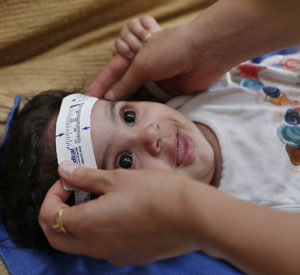This year’s build up to the Summer Olympics in Rio De Janeiro, Brazil is filled is tinged with fear.
The Zika virus, which has been linked to severe birth defects, is casting a shadow over the competition set to begin Aug. 5.
On Tuesday, golfer Rory McIlroy, who was expected to compete for Britain, announced he would be skipping the game because of concerns about contacting the virus.

Experts from the Center for Disease Control in Atlanta are urging caution, but they did not call for a travel ban.
“As of right now, the games will not be cancelled, but the plans may change,” said a CDC spokesperson, who didn’t want to be identified.
The virus is spread by mosquitos. The CDC advises wearing long sleeved clothing and using an EPA registered bug repellant containing: Deet, picaridin, IR3535 or oil of lemon eucalyptus.
The CDC does advise increased caution for pregnant women. Women who were infected by Zika while pregnant gave birth to children with microcephaly. The condition results in babies born with small heads and brains that aren’t fully developed.
For most people, Zika is mild, causing a fever, rash, conjunctivitis and joint pains. However, it does have the potential to be deadly.
So far, 17 athletes have dropped out of the games. Three cited Zika, including Tejay van Garderen, an American cyclist, whose wife is pregnant.
Clarence Hill Jr., a sports writer for the Fort Worth Star-Telegram, said athletes value lives of loved ones over the games.
“Some people train all their lives for the Olympics, but there is nothing more important than life, which shows the severity of the virus.”








